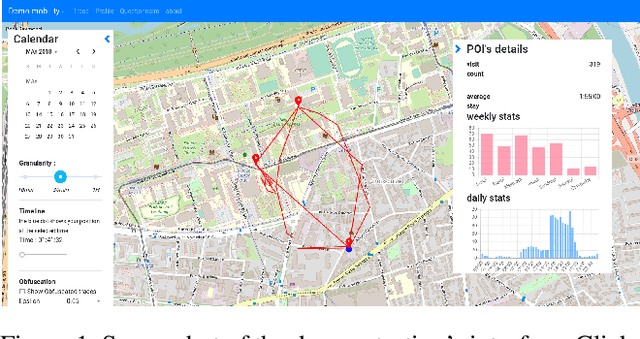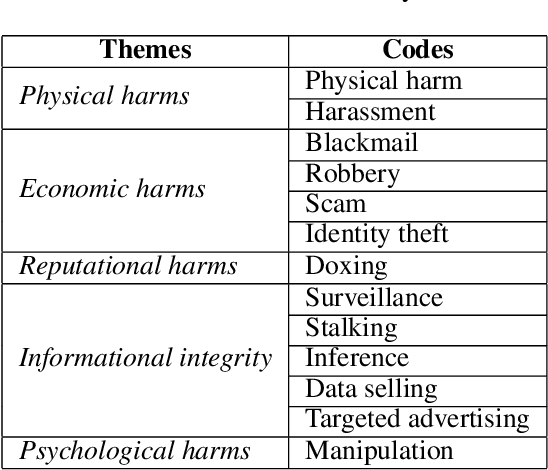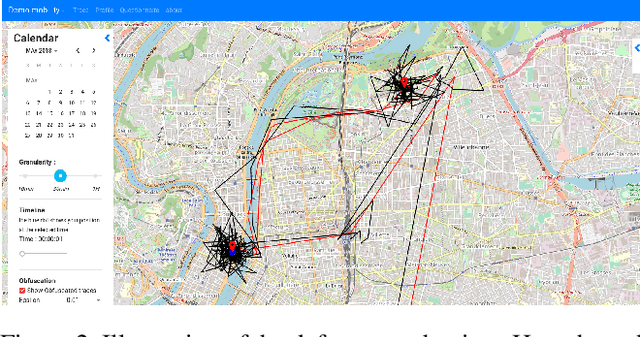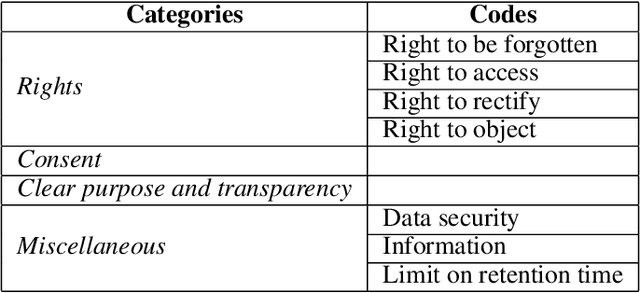Victor Morel
"I'm not for sale" -- Perceptions and limited awareness of privacy risks by digital natives about location data
Feb 18, 2025



Abstract:Although mobile devices benefit users in their daily lives in numerous ways, they also raise several privacy concerns. For instance, they can reveal sensitive information that can be inferred from location data. This location data is shared through service providers as well as mobile applications. Understanding how and with whom users share their location data -- as well as users' perception of the underlying privacy risks --, are important notions to grasp in order to design usable privacy-enhancing technologies. In this work, we perform a quantitative and qualitative analysis of smartphone users' awareness, perception and self-reported behavior towards location data-sharing through a survey of n=99 young adult participants (i.e., digital natives). We compare stated practices with actual behaviors to better understand their mental models, and survey participants' understanding of privacy risks before and after the inspection of location traces and the information that can be inferred therefrom. Our empirical results show that participants have risky privacy practices: about 54% of participants underestimate the number of mobile applications to which they have granted access to their data, and 33% forget or do not think of revoking access to their data. Also, by using a demonstrator to perform inferences from location data, we observe that slightly more than half of participants (57%) are surprised by the extent of potentially inferred information, and that 47% intend to reduce access to their data via permissions as a result of using the demonstrator. Last, a majority of participants have little knowledge of the tools to better protect themselves, but are nonetheless willing to follow suggestions to improve privacy (51%). Educating people, including digital natives, about privacy risks through transparency tools seems a promising approach.
SoK: A Classification for AI-driven Personalized Privacy Assistants
Feb 12, 2025



Abstract:To help users make privacy-related decisions, personalized privacy assistants based on AI technology have been developed in recent years. These AI-driven Personalized Privacy Assistants (AI-driven PPAs) can reap significant benefits for users, who may otherwise struggle to make decisions regarding their personal data in environments saturated with privacy-related decision requests. However, no study systematically inquired about the features of these AI-driven PPAs, their underlying technologies, or the accuracy of their decisions. To fill this gap, we present a Systematization of Knowledge (SoK) to map the existing solutions found in the scientific literature. We screened 1697 unique research papers over the last decade (2013-2023), constructing a classification from 39 included papers. As a result, this SoK reviews several aspects of existing research on AI-driven PPAs in terms of types of publications, contributions, methodological quality, and other quantitative insights. Furthermore, we provide a comprehensive classification for AI-driven PPAs, delving into their architectural choices, system contexts, types of AI used, data sources, types of decisions, and control over decisions, among other facets. Based on our SoK, we further underline the research gaps and challenges and formulate recommendations for the design and development of AI-driven PPAs as well as avenues for future research.
Automating privacy decisions -- where to draw the line?
May 16, 2023


Abstract:Users are often overwhelmed by privacy decisions to manage their personal data, which can happen on the web, in mobile, and in IoT environments. These decisions can take various forms -- such as decisions for setting privacy permissions or privacy preferences, decisions responding to consent requests, or to intervene and ``reject'' processing of one's personal data --, and each can have different legal impacts. In all cases and for all types of decisions, scholars and industry have been proposing tools to better automate the process of privacy decisions at different levels, in order to enhance usability. We provide in this paper an overview of the main challenges raised by the automation of privacy decisions, together with a classification scheme of the existing and envisioned work and proposals addressing automation of privacy decisions.
 Add to Chrome
Add to Chrome Add to Firefox
Add to Firefox Add to Edge
Add to Edge